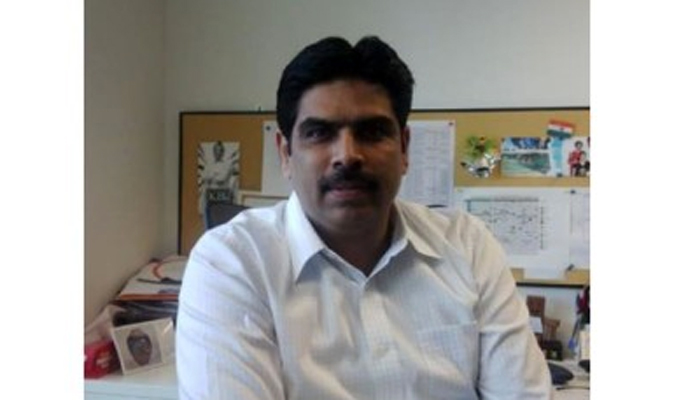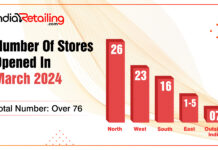Rajan Malhotra
President- Retail Strategy, Future Group
CEO, E-Zone
Rajan Malhotra joined Future Group in the year 2000, and since then has led the launch and operations of a number of retail formats, brands and initiatives. He was among the small start-up team that launched India’s leading hypermarket chain, Big Bazaar, in 2001. Subsequently, he led the operations of the chain across the country with over 100 stores. In 2010, he was appointed President, Retail Strategy at Future Group to outline and execute the organisation’s plans to build and dominate its presence the top eight cities of the country through multiple retail formats. He has been actively involved in outlining the geographical expansion roadmap for KB’s Fair Price and Adhaar formats.
Over the past three years, Malhotra has been involved in leading the operations and expansion of the Group’s home and consumer electronics business through eZone, while also directing macro strategy moves at the conglomerate’s home improvement retail chain Home Town.
Aside from his deep knowledge of retail operations and strategy, Malhotra is also an expert in sourcing, vendor development and merchandise management, skills that he is often called upon to share at various industry seminars and conferences. He counts among his key professional accomplishments the launch and build up of the Big Bazaar brand, re-strategising the Ezone and Home Town business operations, building a geographical expansion strategy for Future Group, and building successful teams/people to handle businesses.
[“India is a country where consumption has to be created. You have to work hard to create reasons for consumption of new categories, and work even harder to deliver great products.”]
At eZone, which operates 92 brick-and-mortar stores in 31 cities, Malhotra is currently overseeing the chain’s transition to an omni-channel identity.
“Apart from the technology infrastructure, I believe navigating the online commerce space is really dependent on change management. There are many variables in how you execute the last mile — one could order online but pick up the goods from a physical store, one could order in the store and have the product delivered home, or a pure-play model,” he notes.
“We are getting our ducks in a row at the back-end to seamlessly merge the physical and virtual words, and in a month’s time, you should see the online component active. Having said that, I don’t think ‘going live’ announces your arrival as an omnichannel retailer. It is a process with several layers of insights and execution. eZone’s online experience will evolve as we continue building on it,” he adds.
CDIT as a category is a major draw for e-commerce customers. How has that impacted the eZone business?
“Well, I think it is an oversimplification to say that ecommerce can disrupt a brick-and-mortar business just by itself; there are always many variables at play. Has it impacted us? Not really, if you look at the numbers. About four years ago, we were at Rs 680-690 crore with 65 stores and we closed last fiscal with Rs 1300 crore on 92 outlets.”
Malhotra’s long stint at Future Group has embedded some core business approaches in his psyche, primary of which is respecting cost-efficiencies. “You see, at Future Group, the central theme is to conduct a profitable business at least cost, and that involves building efficiencies into store design, supply chain, effective customer acquisition tools, etc.”
The challenge for physical retailers in the CDIT space is that technology obsolescence cycles are shrinking faster and faster, he points out. “Gaming as a category, for instance, is shrinking and so are tablets this year. Which is why our brick and mortar operations and store design are highly mutable — to allow us to adapt to changes faster at low top-up cost.”
With Indian consumers constantly changing their lifestyle and expenditure patterns, what does it say about the future of retail?
“India is a country where consumption has to be created,” Malhotra states. “You have to work hard to strategically create reasons for consumption of new categories, and work even harder to deliver great products. The real consuming class of India is only 10 per cent of the populace; the online channels are also really building on just this10 per cent. In a country of 1.3 billion people, imagine what could happen if people were lifted out of poverty and added to the consuming class!”
“There is a massive market out there, and so far, we retailers and brands have barely scratched the surface.”
The success of consumer-facing businesses will hinge also on public sector investments aimed at lifting living standards and creating more wealth among ordinary citizens, he says. “The economy has to grow, manufacturing has to amplify, GDP has to enlarge, for more Indians to be converted into real consumers.”
“India has been on the threshold for a long time and is still on the edge of the real story. I believe that consumers are ready. The brands are not, for some reason. And as retailers, we only sell what is being manufactured. So we said, if the manufacturers are not making it, we will,” he says, referring to the genesis of Future Consumer Enterprise Ltd (FCEL).
[“I believe that consumers are ready. The brands are not, for some reason. And as retailers, we only sell what is being manufactured. So we said, if the manufacturers are not making it, we will.”]
“There is plenty of room to optimise consumption; it is simply not happening. This is why FCEL was created, to create concepts and products that are made for India, to provoke new consumption categories, to a build a critical mass of market-aligned products.”
FutuReborn, the Group’s ‘Rebirth’ strategy unveiled last week in Mumbai, is a large-scale execution plan to convert this belief into reality, he says. “Every business has a phase. For Future Group, it is time to aggregate the rich customer data, insights and analytics we have collected over so many years, process and mine them, to create intuitive products that we know Indian consumers will respond to very well.”
Apart from Future Group founder-CEO Kishore Biyani, is there anybody else he thinks is reinventing the retail wheel effectively?
“I don’t really see anybody in India who has created market disruptors as Future Group did 15 years ago,” he says. That being said, Malhotra does believe that the online retail entrepreneurs are doing a fine job in meeting consumption and shaking up the status quo. “I think they are offering great convenience-driven retailing concepts, albeit in categories already created by brick and mortar retailers.”
On whether the pure-play e-retail model will be sustainable and profitable in the long run, he isn’t ready to vote just yet. “It’s early days for the online guys, the model is constantly being re-calibrated and tweaked. Let’s wait and watch.”
But he does expect a correction to manifest itself soon. “I think there will be some sort of levelling out in the next 24 months.”
Going forward, eZone will be adding about 18-20 outlets this fiscal, and eyeing a target of Rs 1800 crore in revenues, Malhotra informs. And in the long-run? “I think the future of retail is going to be about a brick-and-click model — there are plenty of global retail stories to endorse that outlook,” he asserts.








